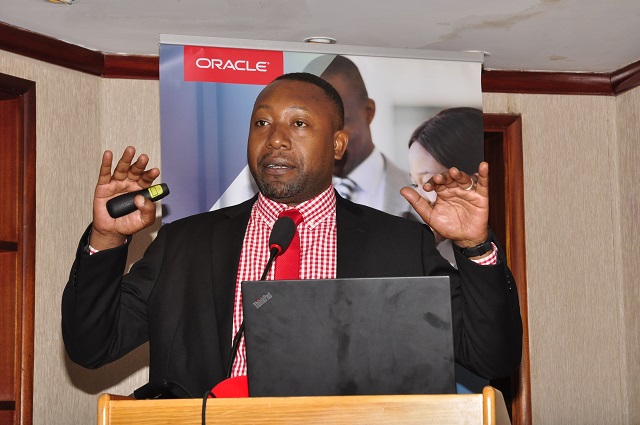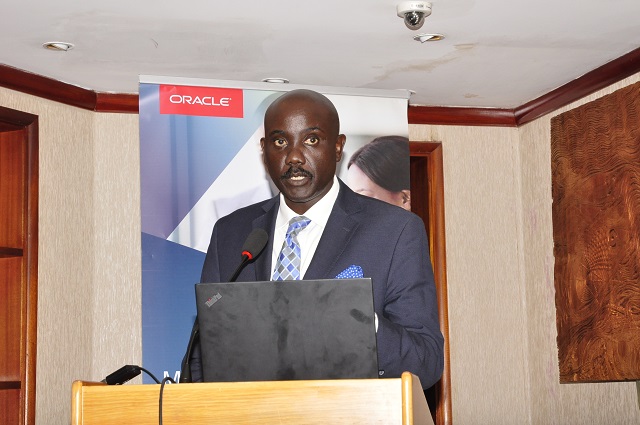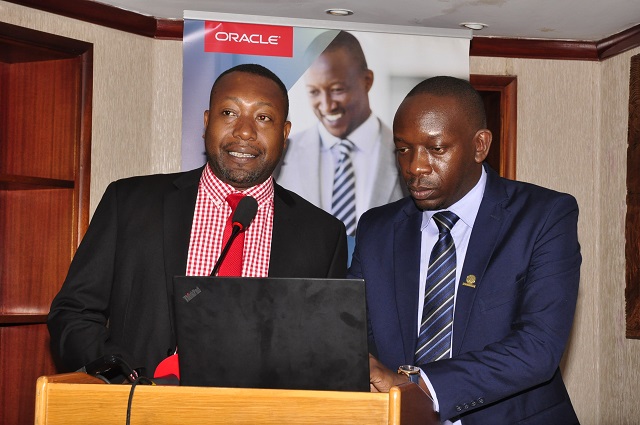Twinemanzi, was speaking during the first executive roundtable for business and ICT leaders as well as regulators, organised by Raxio Data Centre and Oracle, to discuss how enterprises can manage operational costs by leveraging cloud technologies. Raxio is developing a state of the art colocation, enterprise-grade and carrier-neutral datacentre at Namanve Industrial Park, a Kampala suburb. The data centre is being developed to tier III grade and is expected to be completed in H2 of 2019. Recently, Raxio Data Center signed Hamilton Cloud Services as their first customer and announced early bird discount. On the flip side, Oracle has developed, Cloud at Customer- a cloud-based solution that allows Ugandan based organisations to enjoy cloud services either in a colocation data centre such as Raxio’s or customers’ owned data centres. Twinemanzi advised that financial services should compete based on the quality of services and the relevance of their products to the customers. He applauded Raxio Data Center for its efforts in making a world-class shared services data centre. He advised commercial banks and other financial institutions to stick to the playing field they are used to, managing finances and let experts like Raxio data center run networks or manage data. “Let us leave that to the experts; let’s go back to the economics of division of labour,” said Twinemanzi. The financial services industry in Uganda has over the last 10 years has seen an average cost to income rations rise to 74.6%, compared to 66.7% in the 10 years to 2008. As a result, average lending rates increased to a 10 year average of 22.16% from 20.39% in the same period. For this reason, Twinemanzi challenged Raxio and Oracle to explore especially introducing shared software as a service and other software solutions, such as accounting, core banking solutions and credit analysis modules. Speaking at the event, Joachim Steuerwald, the Oracle Cloud Platform Sales Director, said with increased reliability on digital mobile solutions for virtually everything, it was it was mission critical that service providers invest significantly in reliable systems. We are increasingly becoming a digital economy. Customers can’t event tolerate our digital services being down for even an hour- it is just not acceptable. This requires the ICT behind those businesses to be available- 24/365. However, building these highly reliable systems requires the right environment. Steuerwald said that adoption of cloud services in East Africa like in many other African countries in Africa has been slow, partly because of lack of an African data centre footprint which made cloud services expensive but also due to data security concerns, especially by governments, which is why Oracle is fronting the idea of localised cloud services.
Rules of engagement and Regulation?
From a regulatory point of view, BoU is beginning to have an internal conversation on coming up with an official position on the whole idea of cloud computing.
Cloud services help in cost-cutting.
A 2017/2018 survey amongst government ministries, departments and agencies (MDAs) by National Information Technology Authority (NITA) showed that while a majority of MDAs agreed that cloud services had significant benefits such as reduction in ICT related costs (86.4%), simplicity of deployment (77.3%), increased productivity and flexibility in up-or down-scaling, only 28.6% of the MDAs reported using cloud computing services. Most MDAs (80.5%) reported that they host their applications and databases in-house. However, one of the biggest hinderances is the risk of a security breach. Following closely in the cloud service huddles is the high cost of cloud computing services and uncertainty about the location of hosted data. James Byaruhanga, the Raxio General Manager, however, said that with shared infrastructure and software solutions, the kind that will be ushered in by a Raxio-Oracle partnership most stakeholder fears will be addressed and nullified to the most. Shared cloud services hosted in a local data centre basically provide enterprises with a scalable model, tailored to the existing computing needs of the enterprise on a pay as you grow basis.









